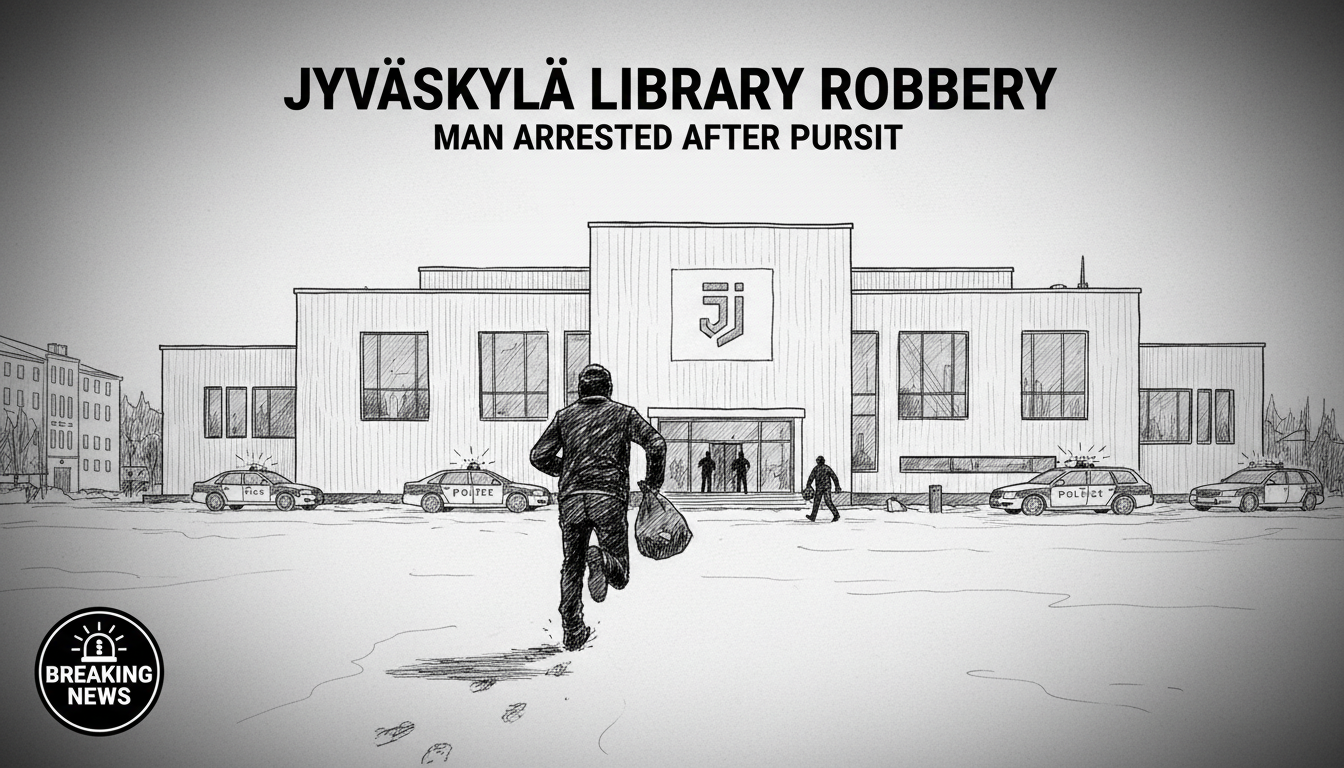Police in central Finland have arrested a suspect following a dramatic incident at Jyväskylä's main library. Authorities took a 31-year-old man into custody on Friday after he allegedly robbed a woman and sought refuge in the public library building.
The Central Finland District Court ordered the suspect's detention based on strong evidence linking him to multiple crimes. He faces formal charges of robbery, assault, and illegal threats. The incident occurred on Wednesday afternoon and prompted a temporary evacuation of library patrons during police operations.
Jyväskylä police operations typically handle about 200 serious assaults annually, making this case part of broader crime patterns in the region. The library evacuation demonstrates how public safety incidents can disrupt daily life in Finnish communities.
Finnish law enforcement maintains one of Europe's highest clearance rates for violent crimes. The country's legal system allows for pretrial detention when prosecutors demonstrate probable cause and flight risk concerns. This case will proceed through Finland's three-tier court system, beginning with the district court where the detention was ordered.
Public libraries in Finland serve as community hubs beyond their traditional educational role. They frequently become unintended venues for various social situations, including occasional security incidents. Library staff across the country receive basic security training to handle unexpected situations.
The incident raises questions about safety in public spaces that are traditionally considered secure environments. Finnish cities generally maintain low crime rates compared to other European urban centers. However, isolated incidents like this remind residents that security concerns exist even in typically peaceful Nordic communities.
International readers should understand that Finland maintains exceptionally high safety standards overall. The country consistently ranks among the world's safest nations in global peace indexes. This single incident represents an exception rather than reflecting general safety conditions in Finnish society.
What happens next in this case? Prosecutors will now prepare formal charges while the suspect remains in custody. Finnish courts typically process such cases within months rather than years. The legal process will examine evidence including witness statements, surveillance footage, and forensic analysis.
The case highlights how even societies with strong social safety nets occasionally experience criminal incidents. Finland's robust legal system and efficient police response demonstrate the country's capacity to handle such situations promptly and professionally.

